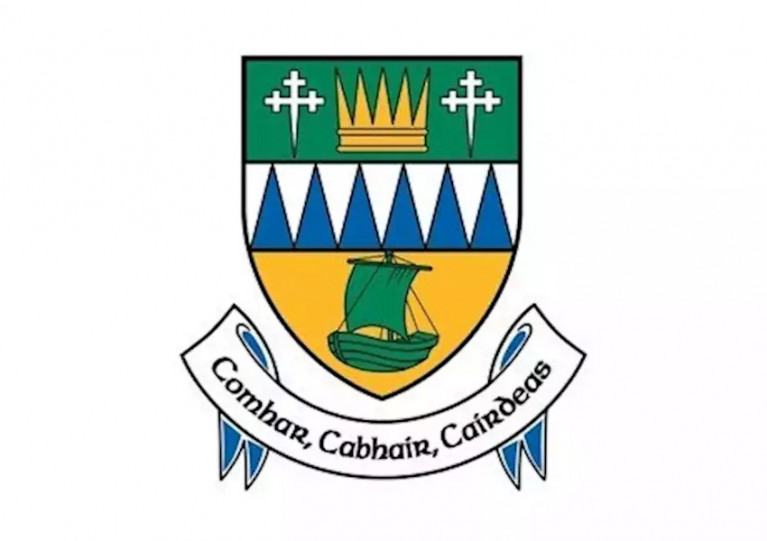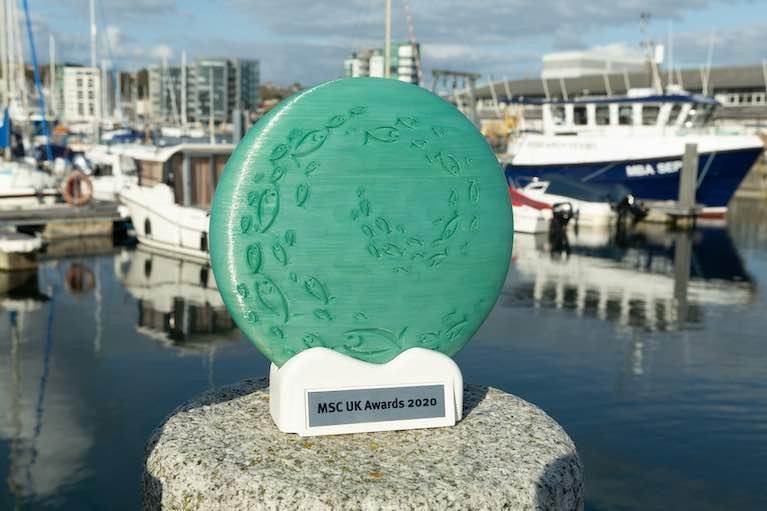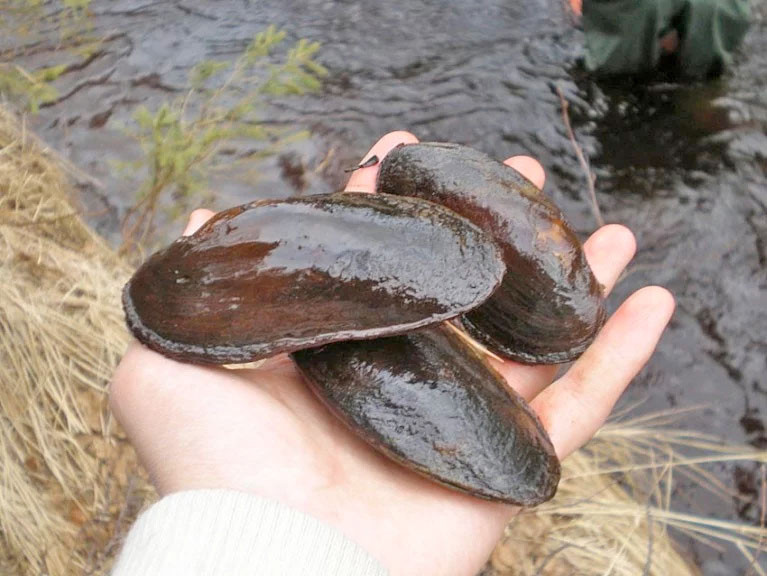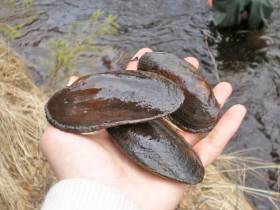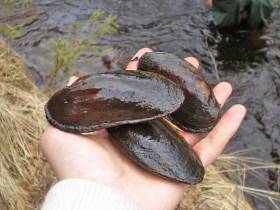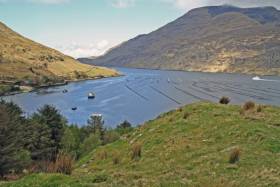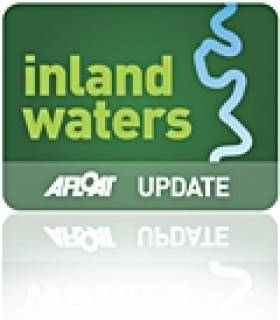Displaying items by tag: mussels
Irish Water Pleads Guilty Over Pollution of Vulnerable Freshwater Mussel Habitat
Irish Water has admitted multiple counts over a pollution event that threatened vulnerable freshwater pearl mussels in a Co Cork river, as The Irish Times reports.
The water utility pleaded guilty to eight counts of breaching is licence terms in connection with highly elevated levels of ammonia and orthophosphate in run-off from a treatment plant in Boherbue, in the northwest of the county.
The case was brought by the Environmental Protection Agency, who gave evidence to the court on the status of the rare mussels in the protected conservation area of the Brogeen River.
The Irish Times has more on the story HERE.
Kerry County Council has launched an investigation after the remains of a number of dead lambs were found dumped in the River Blackwater, as RTÉ News reports.
Around eight lamb carcasses were found in the river close to the R568 between Moll’s Gap and Sneem, in a watercourse that’s home to the rare and endangered freshwater pearl mussel.
“The lambs are not tagged so we would appeal to anyone who knows anything about this matter to contact us,” county vet Paddy Fenton said.
Investigation underway in to the dumping of dead lambs in a Kerry river. The River Blackwater is home to the endangered freshwater Pearl mussel.
— Seán Mac an tSíthigh (@Buailtin) March 9, 2021
No tags on the lambs, Kerry County Council is appealing to the public for information. pic.twitter.com/uQRXgTRUd0
RTÉ News has more on the story HERE.
Marine Stewardship Council Awards BIM for Mussel Fishery Certification
Bord Iascaigh Mhara’s role in certifying the Irish mussel industry as “sustainable” has earned it an “Ocean Hero” award from the Marine Stewardship Council (MSC).
The MSC, based in Britain, is an international non-profit organisation which sets “globally recognised, science-based standards for sustainable fishing and seafood traceability”.
The MSC UK Ocean Hero award “recognises and rewards” fisheries and organisations that have “demonstrated exemplary leadership in the field of seafood sustainability and made a unique contribution to furthering the sustainability of fisheries”.
Bord Iascaigh Mhara (BIM) holds three MSC mussel certificates in both the Republic and Northern Ireland.
The Northern Irish and Irish rope grown mussel fisheries were certified in 2019, and the Irish bottom grown mussel fishery achieved certification in 2013.
The blue MSC label on a seafood product certifies that comes from a wild-catch fishery which has been independently certified to the MSC’s science-based standard for environmentally sustainable fishing.
The label can be found on more than 100 species of seafood in 100 countries
“BIM is an example of vision, commitment and dedication in its push for making the Irish mussel industry 100% MSC certified and sustainable,” MSC senior fisheries outreach manager for Britain and Ireland Katie Keay said.
“Environmental and social sustainability underpins the seafood industry on the island of Ireland,” BIM chief executive Jim O’Toole said.
"This MSC award recognises the collaboration and cross-industry efforts of the bottom grown and rope mussel operators for a sustainable future,” he said.
The Irish mussel industry was valued at €11.7 million in 2018 according to the BIM Business of Seafood report.
The mussel industry in Ireland produces more than 15,000 tonnes of mussels a year. This method of mussel farming was introduced in the 1980s predominantly along the west coast of Ireland.
The Cornish Fish Producers Organisation (CFPO) was highly commended in the “Ocean Hero” category at the MSC awards for its management of the hake gill net fishery.
The CFPO podcast for fishermen, named “ Fathom”, kept its fishing industry informed of developments throughout the Covid-19 lockdown in Britain.
It also teamed up with Seafood Cornwall’s #FishToYourDoor initiative, which brought together fish merchants and customers to support Cornish fishermen through the Corona virus crisis.
New Breeding Programme Aims To Safeguard Rare Freshwater Pearl Mussels
A new joint initiative between the Marine Institute and the National Parks and Wildlife Service (NPWS) aims to revitalise the freshwater pearl mussel through a pilot captive breeding programme.
Pearl mussels are capable of surviving for up to 140 years, making them Ireland’s longest living animal.
But environmental changed have put them on the verge of extinction. The species is listed as Endangered on the IUCN Red List, and is one of the 365 most endangered species in the world.
In Ireland, 19 Special Areas of Conservation (SACs) have been designated in an effort to conserve the pearl mussel in its native habitats.
‘We are hopeful that over time this joint project will lead to a positive outcome for the freshwater pearl mussel in Ireland’
And the new programme — to be based at the Marine Institute’s Newport Research Facility in Co Mayo, close to one of the last remaining reproducing populations of freshwater pearl mussels — is hoped to safeguard the survival of the rare species into the future.
“Captive breeding programmes are already well established in several countries, and we are hopeful that over time this joint project between the Marine Institute and the National Parks and Wildlife Service will lead to a positive outcome for the freshwater pearl mussel in Ireland,” said Dr Áine O'Connor of the NPWS.
One of the reasons for the decline of the freshwater pearl mussel is the low survival rate among juveniles, which are extremely sensitive to slight changes in environmental conditions. This is leading to an ageing population, not capable of replenishing itself.
Juvenile survival is dependent on a clean riverbed, with little silt, sediment or algal growth. These mussels also have a very unusual life cycle, in that they are dependent on the Atlantic salmon and brown trout to host their larvae, called glochidia, for about 10 months. The captive breeding programme is targeted at this crucial life stage.
‘This small experimental population will be given a year to see if the juveniles grow to the stage where they can settle themselves in a suitable habitat’
Work on the programme began this past June when a tank in the Marine Institute’s hatchery was set up with 300 juvenile salmon. In July, 30 adult mussels were removed from the Newport River and transported to the tank.
The project team are currently waiting to see if mussels will release glochidia and whether these will naturally attach themselves to the gills of the salmon.
If successful, the Marine Institute and NPWS will maintain this small experimental population for a year to see if the juveniles grow to the stage where the mussels can detach from the fish and settle themselves in a suitable habitat.
“Historically, we know the Burrishoole catchment [in the area around Newport] contained pearl mussels, which gives us some confidence that the water supply to the hatchery on Lough Feeagh is suitable for long-term maintenance of the mussel populations,” said Marine Institute zoologist Dr Elvira de Eyto.
The pilot captive breeding programme is a partnership between the Marine Institute and NPWS in conjunction with freshwater pearl mussel specialists Evelyn Moorkens and Ian Killeen.
Projects for pearl mussels and conservation of breeding curlew are among the 23 schemes being carried out nationwide under the European Innovation Partnership (EIP), as highlighted in a new exhibition in Dublin.
Agriculture House on Kildare Street is currently showcasing the innovation under the Department of Agriculture, Food and Marine’s EIP/locally led schemes in Ireland.
Speaking at the launch yesterday (Wednesday 17 April), Marine Minister Michael Creed said: “We are committed to building a sustainable agricultural system that respects the environment. The agriculture sector is determined to play its part in responding to the challenges before us on climate, water quality and biodiversity.
“We are investing €59m in these locally-led schemes to achieve these goals at a local level by stimulating and developing innovative new approaches to tackling environmental challenges in a targeted way. This targeted approach to specific challenges in specific areas can complement our larger national agri-environmental schemes.”
The exhibition highlights the varied works undertaken by the EIP Project groups including projects on biodiversity, organic production, pollinators, water quality, flood management, soils, farming in an archaeological landscape and targeting un-utilised agricultural biomass.
The exhibition is open to the public to visit before going nationwide to other DAFM offices for display there. Following its display in Dublin, the exhibition will be moving to the department’s office at Johnstown Castle Estate in Wexford.
Further details of the EIP and locally led schemes can be found on the DAFM website HERE.
President Higgins Turns Down Mussel Fishermens' Appeal
President Michael D Higgins has turned down an appeal made to him by lawyers for four mussel fishermen to refer controversial new legislation on access to Irish inshore waters to the judiciary.
The legislation restoring access by Northern Irish vessels to Irish waters within the six nautical mile limit was voted through the Dáil last week.
It was signed into law by Mr Higgins yesterday.
In a letter to lawyers for four mussel fishermen - who won a Supreme Court case in 2016 challenging the legality of the “voisinage” or reciprocal access to waters - the President’s secretary general Art O’Leary explained that Mr Higgins may only refer a Bill to the Supreme Court “in circumstances where there is a question” that it, or part of it, “may be repugnant to the Constitution”.
The letter did point out that individuals or groups could still take a case to the courts to challenge the constitutionality of legislation.
The fishermen’s legal advisers are still awaiting a response from EU Commissioner for Maritime Affairs and Fisheries Karmenu Vella over their concerns that the legislation was passed without understanding the real impact on the Irish fishing industry.
“We have no problem with Northern Irish fishermen in Northern Ireland making their living, if this was what this was all about, ”one of the four fishermen, Gerard Kelly of Greencastle, Co Donegal, said.
"Mr Kelly had gone on hunger strike outside the Dáíl last week to try and highlight the issues"
Mr Kelly had gone on hunger strike outside the Dáíl last week to try and highlight the issues to politicians and halted his action after the legislation was finally passed.
“Our problem is that this new law gives sufficient loophole to international companies who might register in Northern Ireland and could then gain access to our inshore waters at a time when the stocks cannot take this amount of effort,” Mr Kelly said.
“The key phrase in the legislation is “owned and operated in Northern Ireland” which is not clearly defined," he said.
“We are not just talking about the impact of increased effort on the mussel fishery, but about the impact on inshore stocks such as Razorfish and clams.”
Vessel length will be restricted when a new ban on trawlers over 18 metres inside the six-nautical-mile zone comes into force in 2020.
The Sea Fisheries (Amendment) Bill, which was voted through by 72 votes to eight, has been flagged as reinstating the voisinage (informal neighbourhood) arrangement in place between Northern Ireland and the Republic from 1965 to 2016.
Access by Northern Irish-registered vessels to Ireland’s baseline to six-mile limit was suspended in 2016 after Mr Kelly and three colleagues won their Supreme Court case.
The court ruled then that Northern-Irish registered vessels had been unlawfully allowed to harvest mussel seed in Irish territorial waters.
The fishermen contended available mussel seed had dropped from 30,000 to 2,400 tonnes in 2012, and the court heard from a shellfish expert who noted the mussel seed fishery was “sustainable” with some good practices, including fishing seed later in the season to reduce mortality, until 2003/2004.
These “good practices” could no longer exist, the expert noted, after Northern vessels had entered the fishery.
The legislation to restore “voisinage” had been in abeyance until the recent detention of two Northern Irish fishing vessels in Dundalk Bay by the Naval Service. Although the two vessels had pleaded guilty and were released without conviction, Taoiseach Leo Varadkar had described it as a “really regrettable incident”. The Democratic Unionist Party had accused the Government of trying to implement a “hard border” at sea.
Mr Varadkar did state it would be helpful if the British government gave assurances that it would not itself withdraw from the 1964 London Fisheries Convention (LFC). Britain declared two years ago that it intended to leave the convention, which preceded the EU Common Fisheries Policy, this July. (2019).
The Irish Fish Producers’ Organisation has argued that the new legislation may give all European parties to the LFC the right of access to Irish waters from six miles into the baseline even after Britain leaves.
A British government spokesman said that “we have always been clear that the voisinage arrangement exists separately from the LFC” and Britain’s withdrawal from it has “no legal effect on voisinage”.
“For this reason, there will be no requirement for Britain to alert other member states in the LFC to any change in Irish legislation”.
British government fisheries spokesman Lord Gardiner of Kimble stated in the House of Lords on March 11th that a number of representations were made by the British government since 2016 to restore “voisinage”.
He said that Mr Varadkar had “committed on March 1st” to “changing the law to restore the status quo to what it was before 2016, and has indicated that he is confident the legislation can be passed quickly”.
“The Minister for Agriculture, Food and the Marine, Minister Creed, has made similar commitments,” the House of Lords was told.
Mr Creed has denied that the amended legislation has anything to do with Brexit, but elements within the fishing industry believe his decision to push through the Bill before Britain leaves the EU is tied into efforts to guarantee future access by Irish vessels to British fishing grounds after Britain withdraws from the Common Fisheries Policy.
#Mussels - Marine Minister Michael Creed has announced the selection of a project team to run the new Freshwater Pearl Mussel Programme.
The programme is one of a number of European Innovation Partnership (EIP) projects being rolled out by the Department under Ireland’s Rural Development Programme 2014-2020.
Two of these projects focus on areas agreed in advance with the European Commission: conservation of the hen harrier and of the freshwater pearl mussel.
A project team to lead the Hen Harrier Project was appointed in 2017, and the minister this week announced that a project team has now been selected to develop the actions at local level for the freshwater pearl mussel.
The Department of Agriculture, Food and the Marine is allocating a total budget of €10 million for the Freshwater Pearl Mussel Scheme.
The selection was made on foot of a competitive tender by the department. Following careful assessment of the proposals received, the selection committee identified The Pearl Mussel Project Limited as the approach which best reflected the aims and objectives of the new scheme.
“I am very pleased at the quality of proposals put forward in response to my department’s tender,” said Minister Creed. “I am delighted that the new Freshwater Pearl Mussel programme is moving closer to design and implementation.
“The new project team will now commence developing the various actions to be carried out by farmers in the areas concerned in consultation with my own department and the National Parks and Wildlife Service of the Department of Arts, Heritage, Regional, Rural and Gaeltacht Affairs, as well as with farmers on the ground.”
The winning project team is joint approach led by Dr Patrick Crushell of Wetland Surveys Ireland, bringing together a team with Dr Derek McLoughlin and other experienced ecologists, agricultural advisors and environmental scientists. The team will be supported by Tómas O’Connor of O’Connor Pyne & Co, Chartered Accountants.
The new scheme will be open to farmers in eight selected catchments for freshwater pearl mussel in Ireland, with special emphasis on restoring the hydromorphology of the species’ aquatic habitat while also improving the quality of semi-natural terrestrial and wetland habitats.
The catchments are Currane, Caragh and Kerry Blackwater in County Kerry, Ownagappul in County Cork, Bundorragha, Owenriff and Dawros in County Galway/Mayo and Glaskeelan in County Donegal.
“Being a locally-led scheme, this process will also include the local knowledge and inputs from farmers on the ground,” the minister added. “Once the terms and conditions have been agreed, the recruitment of farmers to this critical scheme will commence. This is a pilot project administered by an independent group with a strong local focus, working in partnership with my department.
“This is a novel and innovative way of responding to local agri-environment challenges and we look forward to working with, and supporting our partners in the delivery of the schemes.”
Yesterday, as reported on Afloat.ie, Minister Creed met his French counterpart Stephane Travert in Paris as part of a series of bilateral meetings on the implications of Brexit for the agri-food and fisheries sectors.
Major Step Forward For Freshwater Pearl Mussel Scheme
#Mussels - Marine Minister Michael Creed has announced a major step forward for the Freshwater Pearl Mussel Scheme with the recruitment of a dedicated management team to help design and deliver the project on the ground.
A formal request for tenders has now been published by the department, which intends to appoint a project team before the end of the year.
The mussel scheme and a similar project for hen harriers will form part of the department’s new ‘Locally-Led’ initiative, a measure proposed by Ireland under the Rural Development Programme 2014–2020 and delivered through the European Innovation Partnership (EIP) framework.
While formal approval for the new measure is still awaited from the EU, Minister Creed said that he was moving ahead with both projects now to ensure that the schemes would be open to farmers in 2017.
Commenting on the mussel project, the minister said it "will be confined to eight catchments containing approximately 80% of the national population and will target up to 800 participants."
An overall budget of €35 million is being made available to fund both projects, designed and delivered in close collaboration with the National Parks and Wildlife Service of the Department of Arts, Heritage, Regional, Rural and Gaeltacht Affairs.
“This is a completely new way of responding to what are by any standards major environmental challenges and choosing the right partners is important for my department,” said Minister Creed. “We want to work with management teams composed of key people who are in the best position to realise the goals of both projects, and who can build local ownership on the ground.”
The EIP Locally Led model will encourage a bottom-up design of the schemes by means of:
- An array of stakeholders which include farmers, advisors, administrators, researchers, ecologists, NGOs, Government departments and agencies. Bespoke locally-tailored solutions to problems.
- Strong focus on networking and collaboration to achieve objectives.
- Dissemination and cross-learning of sustainable best practices.
- Harnessing community involvement, ownership and goodwill in order to achieve mutual benefits and RDP objectives.
Connemara Mussel Farmer Dies In Diving Incident
#Killary - The Irish Times reports on the death of a mussel farmer in a diving incident in Connemara at the weekend.
Marty Nee, who started a farm for rope-grown mussels in the area with his wife Catherine 16 years ago, died after getting into difficulty while diving in Killary Fjord on Saturday evening.
The loss of the 48-year-old Renvyle resident – a regular supplier to the annual Connemara Mussel Festival – has shocked the local community, according to Galway Bay FM.
New Road Threat To Endangered Connemara Mussels
#Mussels - "Major concerns" abound over an endangered species of freshwater mussel after a Connemara roadway project given the go-ahead by planners before its design was finalised.
According to The Irish Times, locals expected the road project to be an upgrade of the existing route between Oughterard and Maam Cross, but only found out later that a wholly new road would be built through their land via compulsory purchase orders.
Besides splitting a number of farms in Glengowna near Oughterard, the final scheme will impact on the catchment of the Owenriff river, one of Europe's oldest trout hatcheries and host to one of the world's most important populations of the freshwater pearl mussel Margaritifera margaritifera.
And according to an independent ecologist, the presence of the latter means planning permission cannot be legally granted in the way it has been decided.
The Irish Times has much more on the story HERE.


























